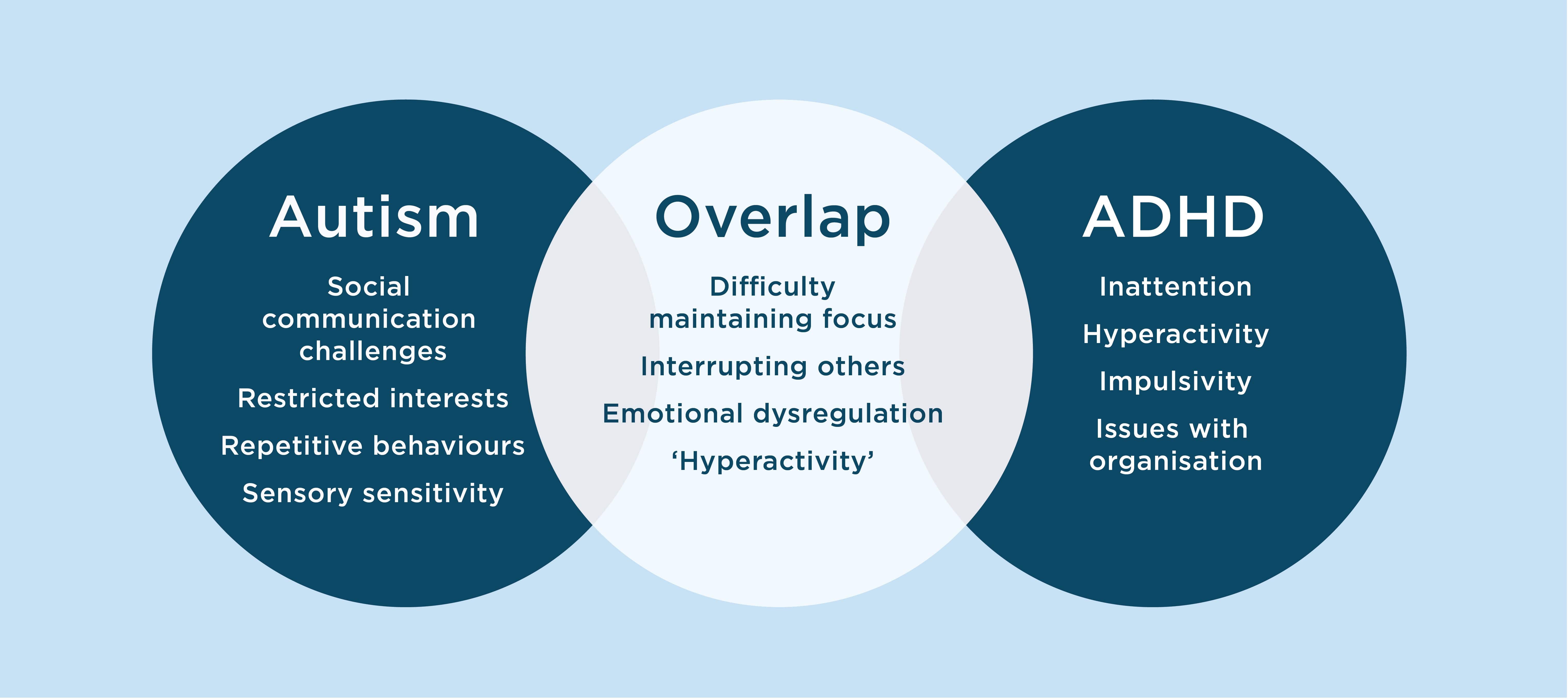Autism vs ADHD: understanding differences, overlaps and diagnosis
Exploring the key differences and overlap between autism and attention deficit hyperactivity disorder (ADHD) to better understand, diagnose and support people affected.
Exploring the key differences and overlap between autism and attention deficit hyperactivity disorder (ADHD) to better understand, diagnose and support people affected.



Autism and ADHD are two distinct neurodevelopmental conditions that can impact a person’s ability to navigate daily life. While each condition has its own set of characteristics, they also share some similarities and overlap, which can sometimes complicate diagnosis and management.
Understanding the differences and similarities between autism and ADHD is important to ensure that people get the right support.
Autism has a number of characteristics that can vary widely between people. Key signs of autism include:
In contrast, ADHD symptoms primarily involve issues with attention regulation, impulsivity and hyperactivity, that can impact daily life and learning. These may include:

While there are clear differences between autism and ADHD, they also share a number of traits, which can sometimes make diagnosis challenging. Common overlapping symptoms include:
These shared characteristics can lead to misdiagnosis or not spotting when both autism and ADHD are present in the same person. It’s important for healthcare professionals to consider the full range of behaviours associated with autism and ADHD when they’re assessing a child or adult. This thorough understanding means they can ensure that any support plans are tailored to each person’s unique needs.
Recognising when the signs of autism or ADHD are significant enough to need a professional evaluation is a crucial step towards getting the right support. If you notice persistent issues in social communication, focus or behaviour that differ from people of a similar age and developmental level, then it might be time to reach out for an evaluation and potential diagnosis.
Documenting these behaviours and symptoms can provide valuable insights for healthcare professionals. It’s a good idea to keep a record of specific instances of concern, noting patterns that emerge and situations where these behaviours are most obvious.
If you’re concerned about yourself or your child, you may wish to reach out to your GP for an initial discussion. They’ll be able to explore your symptoms, conduct any relevant autism or ADHD screening tests, and refer you to a specialist psychologist or psychiatrist for a formal assessment, if they think this is needed.
A quick questionnaire that people can complete on behalf of themselves or a child/young person. This simple screening tool indicates whether the person might benefit from receiving a diagnostic assessment for autism.
Autism and ADHD assessments often include a combination of interviews, behavioural observations and standardised diagnostic tests to understand each person’s unique challenges and strengths.
At Priory, we offer specialised services to help streamline this process. We provide private autism assessments for adults and children, which consist of a thorough evaluation by one of our experts, a personalised outcome report and recommendations for any further support. For ADHD concerns, we can help you to understand your condition better and explore the most effective strategies to help you manage your symptoms.
Reaching out to Priory not only ensures that you can receive an evidence-based assessment for autism or ADHD, but also connects you with ongoing support and resources tailored to you or your child’s needs. Find out more about the autism support and ADHD treatment that we offer at Priory.
